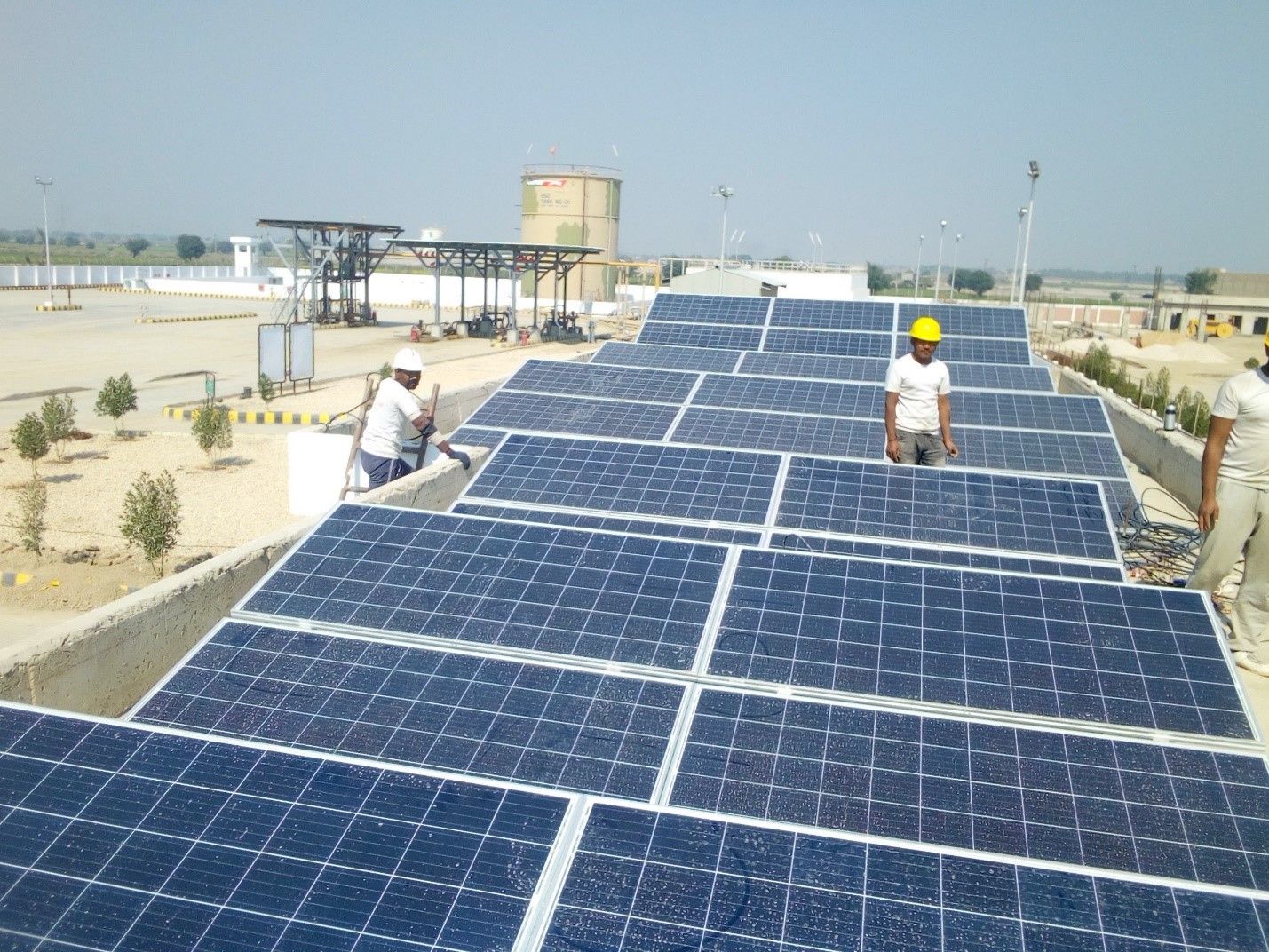As one of the world's fastest developing economies, India's carbon footprint has increased because of mass commercialisation.
Due to rising concerns around climate change, countries have been trying to adopt renewable and more environment-friendly sources of energy. In fact, India is running the largest renewable energy power development programme in the world. The Ministry of New and Renewable Energy (MNRE) has set a target to deploy renewable capacity to the tune of 227 GW by 2022.
Additionally, India has a thriving solar energy industry, with the Indian government focused on producing 114 GW of solar-powered energy by 2022.
According to a Mercom Capital Group report, global venture capital and private equity funding in the solar sector will reach $4.5 billion in 2021, up from $1.2 billion in 2020. Corporate investments in the sector in 2021 were the highest in 10 years.
India added 4.58 GW of solar in HI 2021, exceeding the 3.2 GW installed in the entire calendar year 2020.
Here are some homegrown solar energy startups to help India transition to a clean and sustainable source of energy:
Fourth Partner Energy
Hyderabad-based startup , founded by Vivek Subramanian, Saif Dhorajiwala and Vikas Saluguti in 2010, provides turnkey rooftop solar energy solutions to reduce energy costs. It started providing sustainable energy solutions by December 2019.

The startup raised $125 million from Nordund and The Rise Fund to strengthen its presence across South and Southeast Asia. It is targeting 3 GW of installed solar capacity by 2025, and the expansion of capabilities across energy storage and EV charging infrastructure.
Fourth Partner Energy claims to manage a portfolio of 550 MW across its distributed and open access solar portfolios. It has also expanded its operations across Sri Lanka, Bangladesh, and Vietnam. In Indonesia, 4PEL has associated with integrated energy major Indika Energy to offer solar solutions for corporates there.
ReNew Power
Founded in 2011 by Sumant Sinha, creates, assembles, owns, and operates utility-scale wind and solar energy projects, hydro projects, and dispersed solar energy projects. As of November 30, 2021, ReNew claims to have an absolute capacity of roughly 10.3 GW of renewable energy across India, including commissioned and committed projects.
The startup’s expansion of its functional capability comes as India takes at 500 GW of non-fossil fuel energy capacity by 2030 and aims to diminish total projected carbon emissions by one billion tonnes, as announced by Prime Minister Narendra Modi at the COP26 Glasgow summit.
CleanMax solar
Founded by Gajanan Nabar in 2011, builds rooftop solar and open access solar for commercial and industrial segments.
In 2019, the startup raised Rs 275 crore from Macquarie-managed UK Climate Investment to expand its renewable energy portfolio.
Some notable clients of CleanMax solar include Adobe India, Volvo India, Tata Motors, United Breweries, ACC, SKF, Mahindra Group, and others.
Azure Power
Founded in 2008, Azure Power is a sustainable energy solutions provider, and power maker in India, aiming to create an incentive for all stakeholders through high-performance renewable energy resources to uproot 230 million tonnes of global emissions by 2030.
It has a renewable energy resource base of over 2.6 GWS of operational capacity and 4.8 GWS of maximum capacity under development.
John Cleantech
Founded by IIT Bombay graduate John Clea in 2014, the startup gives rooftop solar-powered panels to assist its clients with cutting down energy costs. It also helps its low-income clients to secure easy solar loans through its partnerships with a few banks, including IDBI Bank.
Origin Clean Tech last received $450,000 in seed funding in October of 2017 from Globe Vester, an online venture capital firm.
Edited by Saheli Sen Gupta


